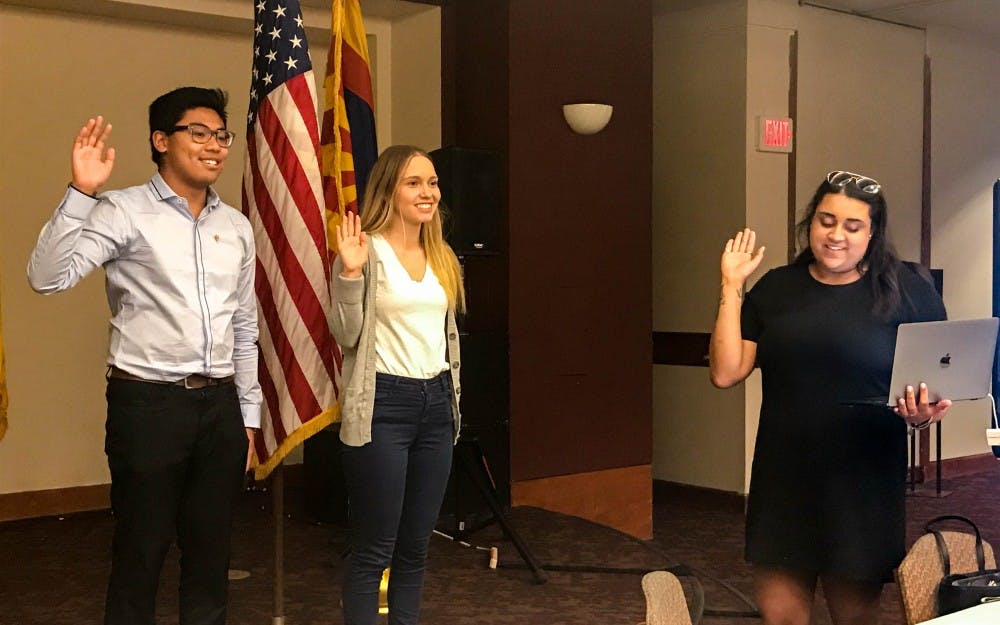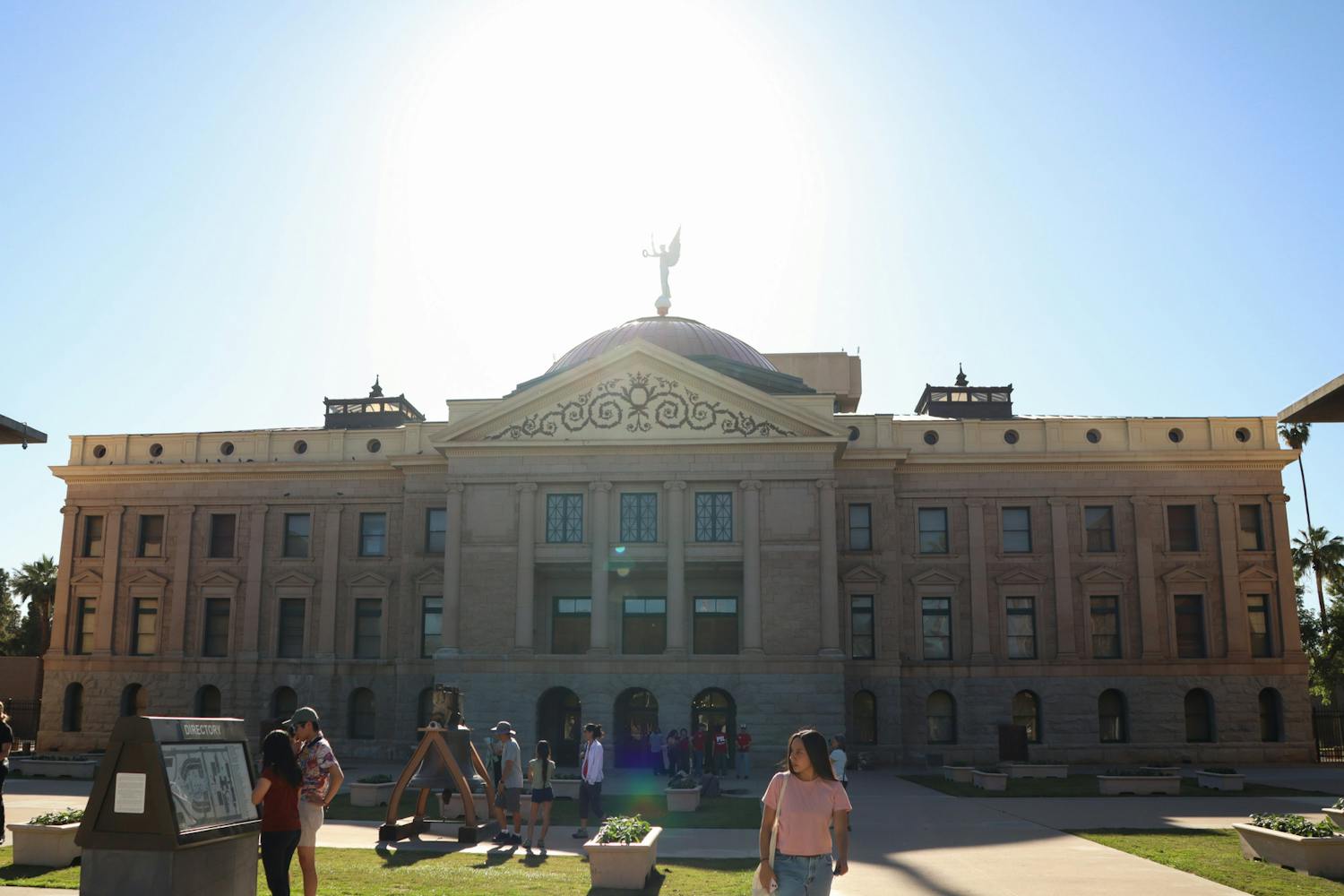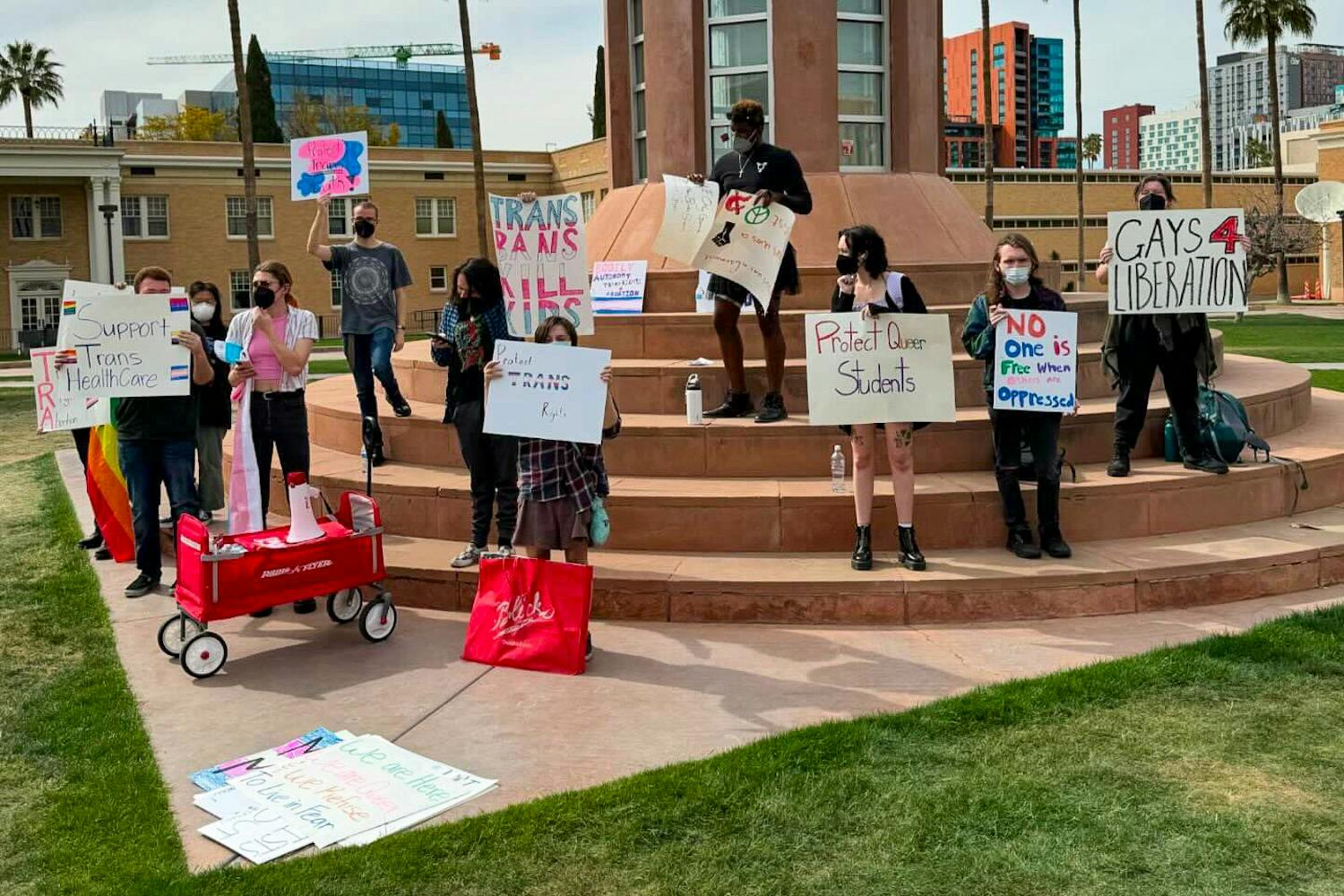ASU’s Undergraduate Student Government operates under a cloud of confusion for many students. The mysteries of what goes on behind the scenes of ASU's student government often go unquestioned and unreported. Therefore, to give clarity and transparency to the organization, below is a guideline of the foundations of USG.
Who, what and where is USG?
USG has organizations across all four campuses at ASU — Tempe, Downtown, West and Polytechnic all have their own separate entities. However, they also come together as one large organization to form the Associated Students of ASU as well as the Council of Presidents, which consist of the USG presidents from each campus.
For the 2018-2019 school year, the presidents are:
Tempe: Allison Sorgeloos, a senior education major.
Downtown: Aly Perkins, a senior public service and public policy major.
West: Alexander Haw, a senior political science major.
Polytechnic: Daniel Pasco, a senior aeronautical management technology major.
“We oversee things at a university-wide level and then we also oversee our individual student governments,” Perkins said.
The Council of Presidents comes together to discuss broad initiatives that all or some of the campuses would like to implement.
These initiatives can span from sporting event ideas to health and wellness issues that all four campuses experience. The Council also speaks with their adviser, Daniel Ashlock, the director for the advancement of student initiatives, who provides them with guidance.
Besides the presidents at each campus, there are several different positions offered through USG. Though they do vary slightly across the campuses, they have the same general staff.
Below the president is the vice president of policy and the vice president of services. Then, there is the chief of staff, the senate president and the various directors. The directors oversee duties such as marketing, finances, health and wellness, civic engagement and more.
What does the Senate do?
The USG organizations at each campus also have a senate. These are students from each college on that specific campus who represent the constituents from their respective colleges and schools. Each senate has a president that overlooks what they do.
“I help train new senators, I help keep track of their responsibilities and I help them manage our budget,” Tasha Snider, the senate president for the West campus and a senior studying forensics and biology, said. “I help make them get connections on projects they're working on and basically just help them succeed.”
The senate aids in the inception of initiatives and bylaws for their respective campuses and colleges. For example, at the West campus, Snider said they are working to bring compost bins, a grocery shuttle and free feminine hygiene products to campus. However, these are not simply brought to life by a simple snap of the fingers.
“The senate can bring an initiative through … they come up with a concept and then they investigate it,” Snider said.
Once an idea is established, the senate member or members who conceived the initiative bring the idea to the vice president of services or vice president of policy at their campus, who then bring it up with a dean of students to implement the idea.
On each campus, the senates are split into their own coalitions. West has delegated certain senate members to the university affairs team, government operations and the appropriations team. The other USGs have their senate members split up differently depending on their specific needs.
The senate members are supposed to talk with their constituents on a daily basis, and they hold open office hours so that students can call or visit them to discuss concerns or ideas.
What is the budget?
The budget is separate for each campus. Tempe, Downtown, West and Polytechnic each get an amount of allocated funds from the University. The budgets vary widely, from Tempe’s $2.3 million to Polytechnic’s $459,000 budget.
These figures reflect campus and student population size as well as the campus' individual need for funds. Each budget generally encompasses student organization fund requests, Programming and Activities Board funds, child care subsidies and financial needs for the initiatives USG may be trying to implement.
Students in clubs can request funds from USG by going through their senators and filing a fund request form. Though the ways students may request funds can differ from campus to campus, each essentially has the same process.
“Then once we know enrollment and how many people are coming in and how many people are really paying the fees … we get a letter from our dean of students saying, ‘congratulations! You are awarded x of dollars,’” Sorgeloos said.
From there, senators are able to change the budget according to what is needed and where.
“The previous USG president for our campus every year recommends a budget proposal. All the numbers are based off of previous spending, though I can directly maneuver some of the funds around if I need to,” Pasco said. “And then I bring that to the first senate meeting for them to look at, change what they need and finalize it.”
If students or clubs then need more funds than the budget allocates for, the senate can again look at what they are spending money in and what may need to change.
Reach the reporter at mlshuman@asu.edu or follow @mackenzieshuman on Twitter.
Like The State Press on Facebook and follow @statepress on Twitter.





